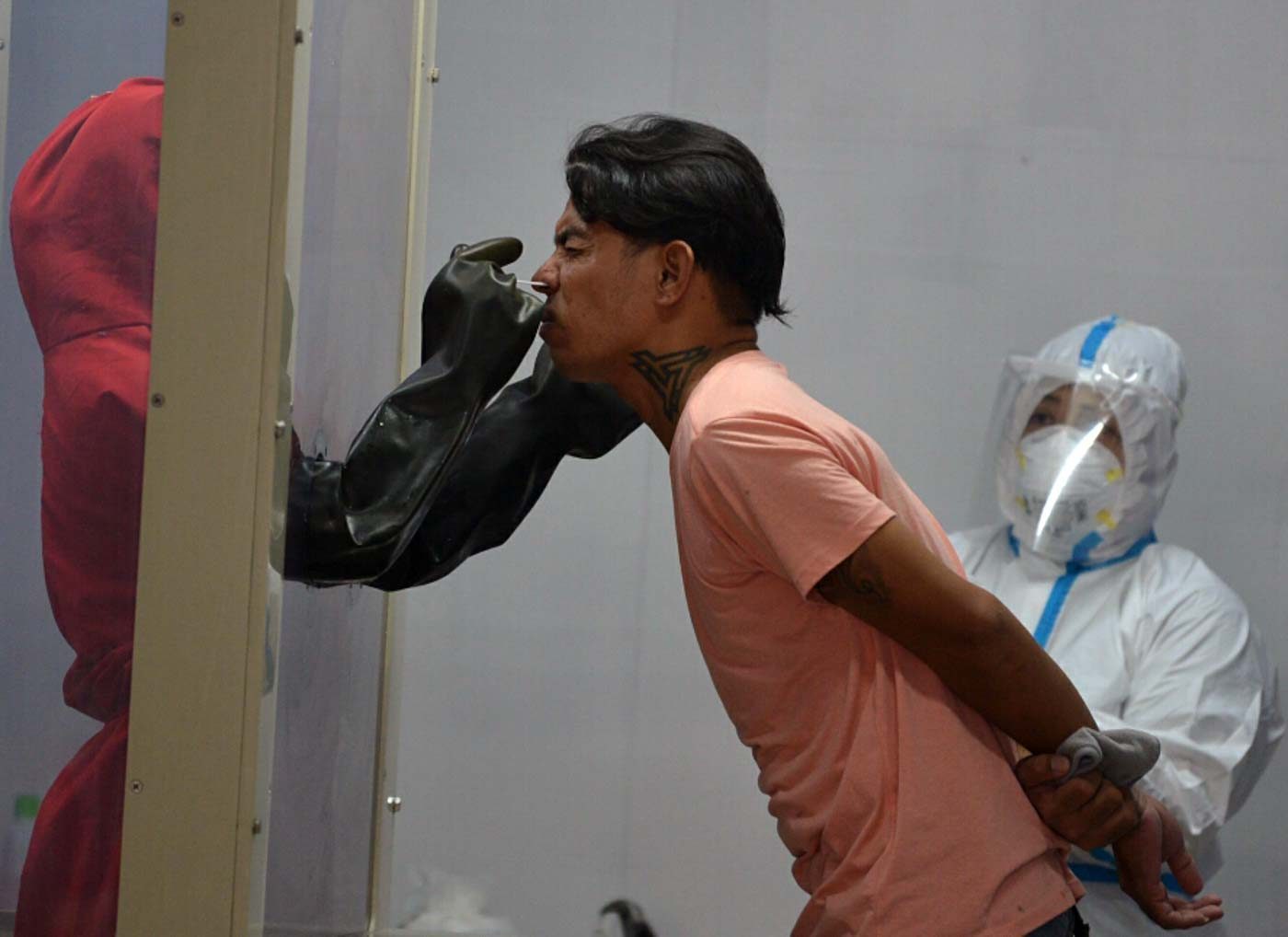SUMMARY
This is AI generated summarization, which may have errors. For context, always refer to the full article.

MANILA, Philippines – The House of Representatives gave its thumbs up to a bill that would require the use of the real-time reverse transcription polymerase chain reaction (RT-PCR) to test vulnerable sectors for the coronavirus, including those who do not necessarily have symptoms.
On Thursday, June 4, 240 lawmakers approved on final reading House Bill (HB) No. 6865 or the Crushing COVID Act, which aims to set an “available, affordable, and accessible” RT-PCR testing protocol for certain “vulnerable members of society.”
Only one legislator voted no and no one abstained from the vote.
If passed into law, HB No. 6865 would require the government to use the RT-PCR test for the following:
- Patients and health workers with either mild to severe symptoms, or no symptoms but with history of travel or contact with a confirmed case
- Non-health frontliners responding to the pandemic
- Filipino workers with preexisting medical conditions
- Persons, both Filipinos and foreigners, entering the Philippines from abroad
- Filipino workers who have quarantine passes and do most errands for their households
- Patients required by their doctors to submit an RT-PCR test result prior to a treatment or procedure
The initial version of the bill previously covered only Filipinos who have comorbidities or other illnesses and who are also returning to work, as well as Filipinos and foreigners entering the country.
The Philippine Health Insurance Corporation would be tasked to cover the testing of all qualified Filipinos. Foreigners would have to shoulder their own testing fee.
The RT-PCR test kits use swabs from patients taken from the nose or throat to determine the actual presence of the coronavirus. Its accuracy rate is 97% or higher. (READ: FAST FACTS: What’s the difference between PCR, rapid antibody tests?)
An imported RT-PCR test kit costs between P3,000 and P8,000, while the COVID-19 test kit developed by scientists from the University of the Philippines is cheaper at P2,700 to P3,000. The local test kits, however, have yet to be mass produced.
On Thursday, the House also passed the P1.3-trillion economic stimulus package, which allots P20 billion for the mass testing of millions of Filipino workers in 2020 and 2021.
For now, the Department of Health is limiting the coverage of COVID-19 testing to potential cases, people with travel history or exposure to a known coronavirus case, and health workers.
Health Undersecretary Maria Rosario Vergeire said it is currently “not cost-effective” to prioritize the testing of those who do not show symptoms because the Philippines’ healthcare system does not have the capacity for it.
To date, 20,283 people have been infected with COVID-19 in the country, with 984 deaths and 4,248 recoveries. – Rappler.com
Add a comment
How does this make you feel?
There are no comments yet. Add your comment to start the conversation.